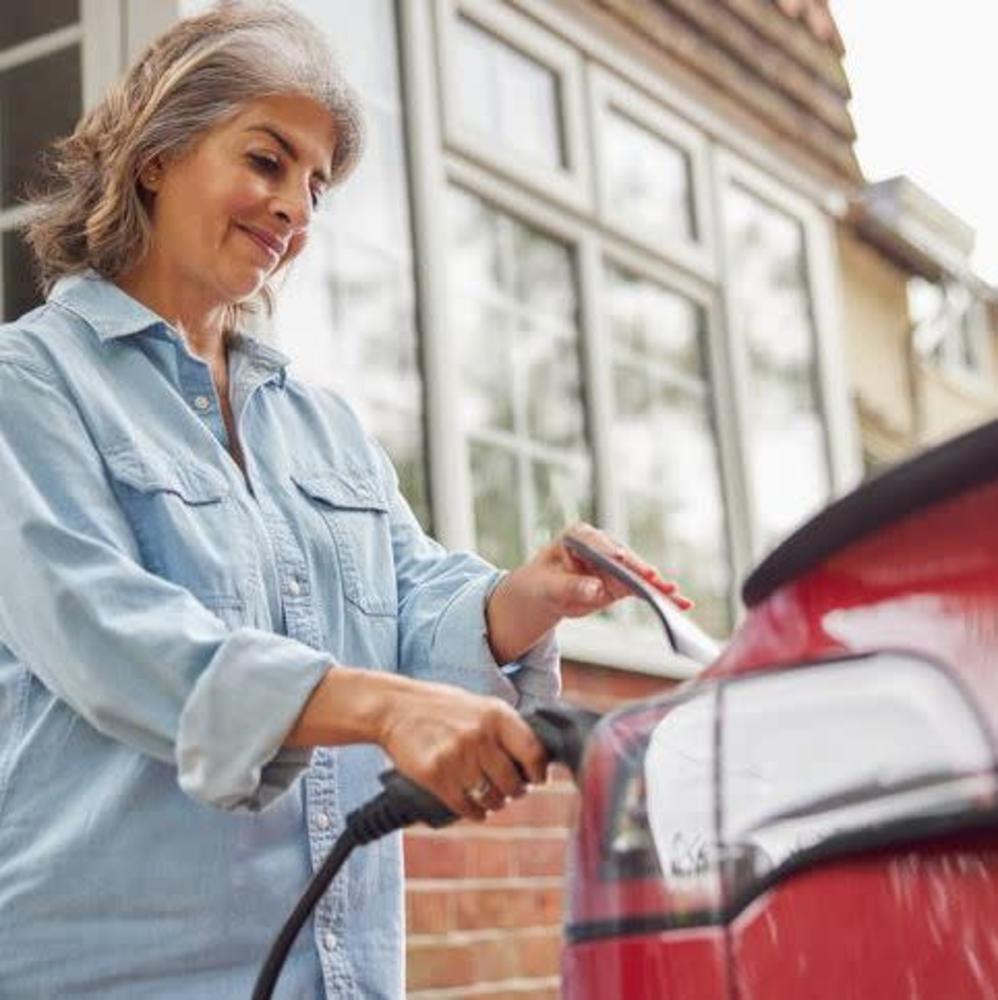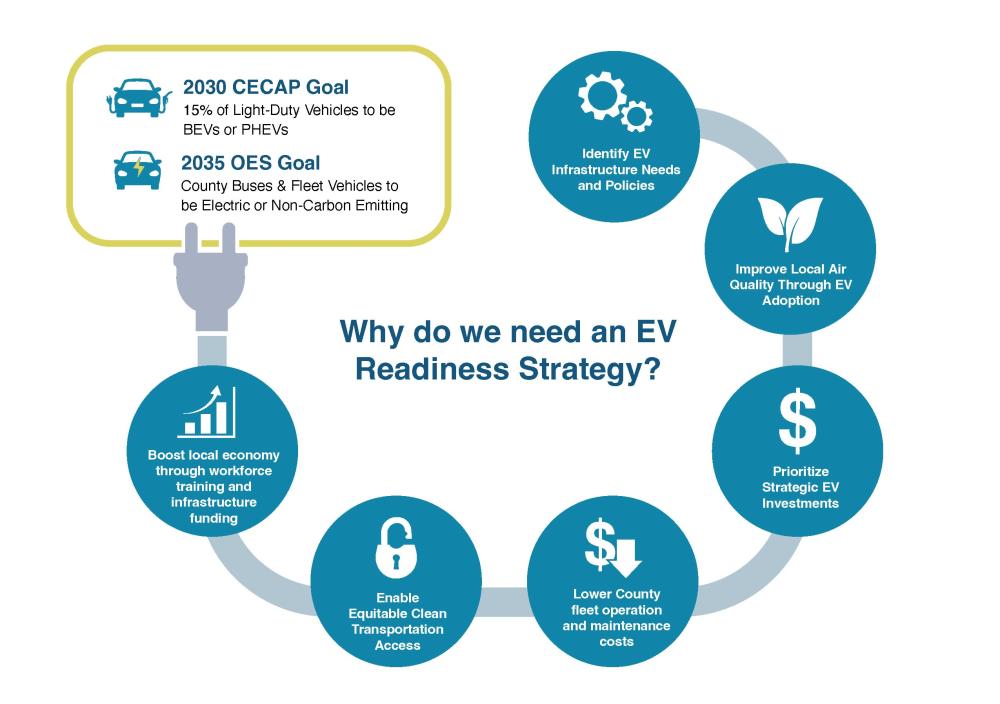Fairfax County Electric Vehicle (EV) Readiness Strategy
Fairfax County Electric Vehicle (EV) Readiness Strategy
This project is being co-led by Fairfax County's Office of Environmental and Energy Coordination (OEEC) and Department of Vehicle Services (DVS).
How should Fairfax County get ready for more electric vehicles?
Fairfax County is developing its first Electric Vehicle (EV) Readiness Strategy — a roadmap to support the growing number of electric vehicles on our roads. From public charging stations to building codes, your input will help shape how the county prepares for an EV-friendly future.
Staff recently held a townhall and a public comment period to get feedback from the community. The public comment period is now closed and comments will be incorporated into the EV Readiness Strategy. Thank you to all the residents who shared their comments. Please email any questions to OEECElectricVehicles@fairfaxcounty.gov or contact Julie Gurnee at 703-533-5345.
- View the recording of the townhall and a transcript of the questions and answers.
- Access the Draft EV Readiness Strategy
The final strategy will be submitted to the Board of Supervisors and made available to the community in November 2025.
The Issue
Fairfax County is focused on promoting the adoption of electric vehicles (EVs) to meet its emission reduction goals as outlined in the Community-wide Energy and Climate Action Plan (CECAP) and the county’s Operational Energy Strategy. EVs offer environmental benefits and lower fueling and maintenance costs compared to traditional gas or diesel vehicles.
The county aims for 15% of all light-duty vehicle registrations to be electric by 2030, up from the current 3%. Efforts to transition the county's vehicle fleet to electric have been ongoing, with a target for all county fleet vehicles to be electric or non-carbon emitting by 2035.
Expanding the availability of vehicle charging infrastructure is crucial for achieving these goals and ensuring that everyone, regardless of their location or socioeconomic status, has equitable access to the benefits of electric vehicles.
Electric Vehicle Registrations in Fairfax County (2016-2023)
| Year | Battery EVs | Plug-In Hybrid EVs | Total EVs | EV Registration Percentage | Total Light-Duty Vehicles |
|---|---|---|---|---|---|
| 2023 | 22,249 | 6,806 | 29,055 | 3.35% | 867,608 |
| 2022 | 13,405 | 5,143 | 18,548 | 2.14% | 868,248 |
| 2021 | 10,020 | 3,766 | 13,786 | 1.59% | 868,889 |
| 2020 | 6,635 | 2,388 | 9,023 | 1.04% | 869,529 |
| 2016 | 1,212 | 1,035 | 2,247 | 0.26% | 876,572 |

Fleet Transition Study and Community EV Readiness Strategy
Working with consulting firm AECOM, Fairfax County staff are analyzing EV infrastructure patterns and projecting future growth in EV registrations. This analysis will identify existing gaps and propose strategies for increasing charging opportunities. An assessment of potential funding sources and financing strategies will also be included.
The project will include two components:
- A transition study for the county's vehicle fleet. The county fleet consists of diverse vehicle types, ranging from motorcycles to fire trucks to heavy equipment. The fleet transition study will present capital and operating costs for the conversion and estimates for when suitable electric alternatives for a variety of vehicles will be available. The study will be integrated with a charging infrastructure strategy that ensures that proper charging equipment is in place before fleet vehicles arrive.
- A Community EV Readiness strategy. The strategy will build on prior regional planning work by the Metropolitan Washington Council of Governments, with a focus on Fairfax County’s specific needs. The county has a particular interest in increasing the availability and use of EVs in vulnerable and historically disadvantaged communities to ensure equitable access to EVs and electric vehicle supply equipment.
A draft strategy was be posted for public comment in August 2025 (see links above). The final strategy will be submitted to the Board of Supervisors and made available to the community in November 2025.
Stakeholder Engagement
In addition to conducting working sessions with internal stakeholders, the county understands that diverse representation and public engagement is fundamental to the success of the EV Readiness Strategy. This will include:
A focus group with external stakeholders.
A virtual townhall on August 6, 2025. (Watch recording of townhall.)
Get Involved
Community members are encouraged to participate and share their ideas for making Fairfax County EV Ready. For more information, please email OEECElectricVehicles@fairfaxcounty.gov or contact Julie Gurnee at 703-533-5345.


